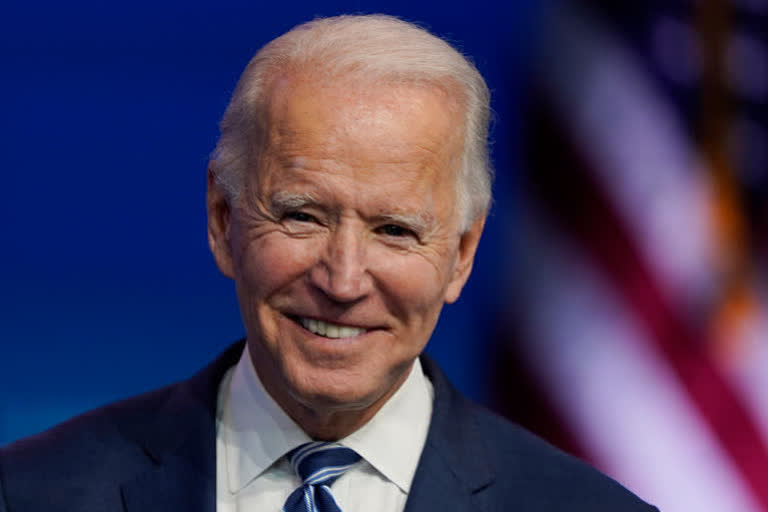Washington: The head of the U.S. Conference of Catholic Bishops told colleagues on Tuesday that President-elect Joe Biden's policy positions, including support for abortion rights, pose a “difficult and complex situation” for the church.
Los Angeles Archbishop José Gomez, completing his first year as the USCCB's president, welcomes many of Biden's stances, including on immigration, racial justice and climate change. But some conservative bishops, noting the church''s strong opposition to abortion, were upset last week when Gomez congratulated Biden — a fellow Catholic — on his victory.
On Tuesday, as the USCCB ended the public portion of its two-day national meeting, Gomez departed from the official agenda to broach the issue.
“We are facing a unique moment in our history,” he said. “The president-elect has given us reason to think he will support some good policies" but also some that "undermine our preeminent priority of the elimination of abortion.” “These policies pose a serious threat to the common good,” Gomez said.
“When politicians who profess the Catholic faith support them ... it creates confusion among the faithful about what the church actually teaches on these questions,” Gomez said he would form a working group to address the matter, headed by the USCCB's vice president, Detroit Archbishop Allen Vigneron.
There was no immediate response by Biden's transition team to an AP request for comment.
Gomez''s unexpected remarks followed a two-hour session in which bishops from across the U.S., meeting online due to the coronavirus outbreak, shared their dioceses'' efforts to cope with the pandemic and to combat systemic racism.
Some who spoke during the racial injustice discussion represent communities that have seen protests and occasional violence after the police killing of George Floyd in Minneapolis in May.
Archbishop William Lori of Baltimore was among several who described church-organized listening sessions for community members to share their experiences with racism and their thoughts on how to curtail it.
“These conversations can be difficult, painful,” Lori said. “A lot of people don't think they need those conversations because they don't have a racist bone in their body. The reality is much different.” As one of several race-related initiatives, Lori said his archdiocese is building a new K-8 Catholic school in one of Baltimore''s poorest neighborhoods.
Archbishop Mitchell Rozanski of St. Louis said his archdiocese is seeking to promote racial equity in its hiring practices and has hired a diversity officer for a group of Catholic schools.
Rozanski recently toured predominantly Black neighborhoods including a stop in nearby Ferguson, where he prayed at the site where Michael Brown, an 18-year-old Black man, was fatally shot by a white police officer in 2014.
